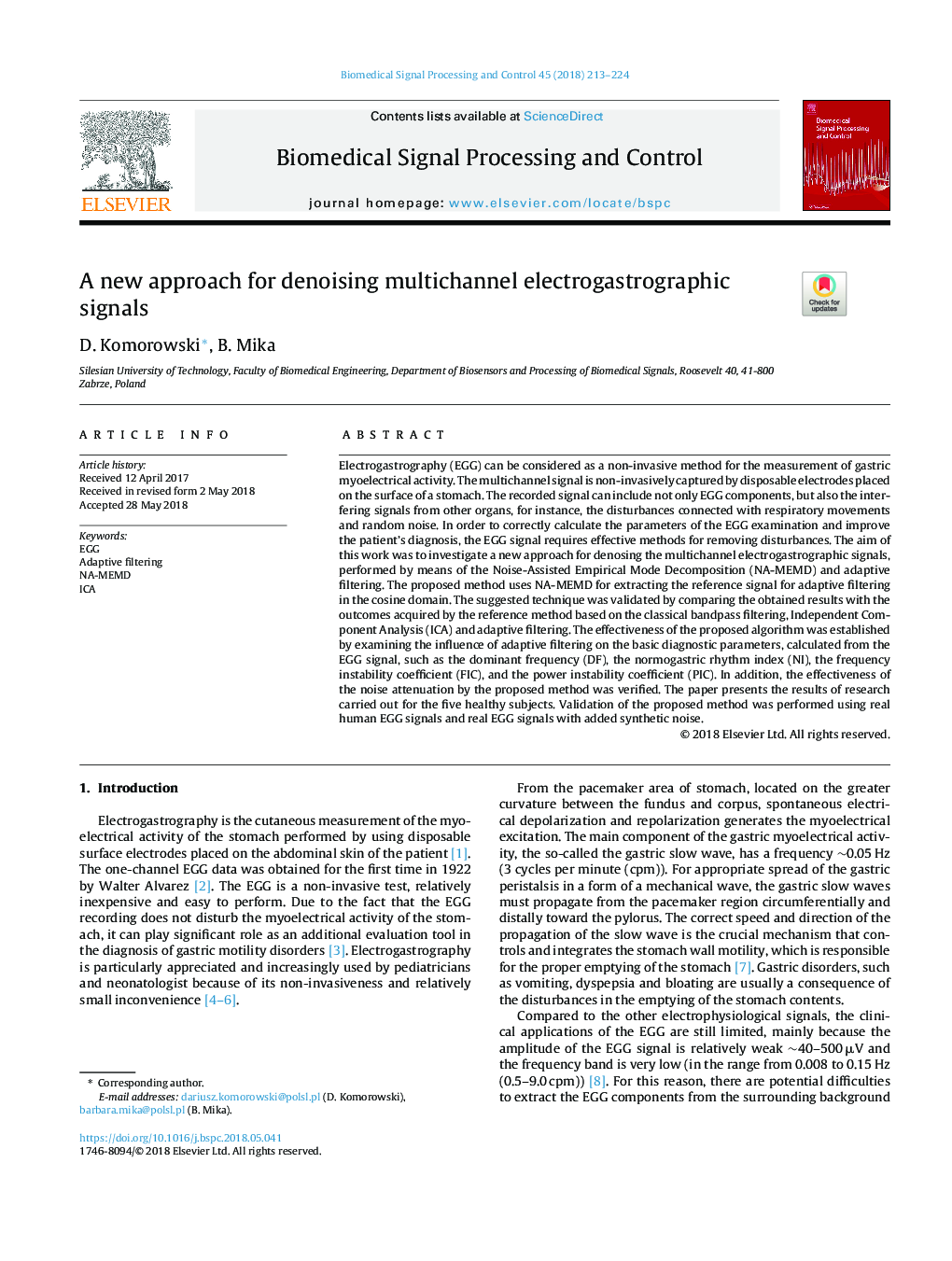| Article ID | Journal | Published Year | Pages | File Type |
|---|---|---|---|---|
| 6950730 | Biomedical Signal Processing and Control | 2018 | 12 Pages |
Abstract
Electrogastrography (EGG) can be considered as a non-invasive method for the measurement of gastric myoelectrical activity. The multichannel signal is non-invasively captured by disposable electrodes placed on the surface of a stomach. The recorded signal can include not only EGG components, but also the interfering signals from other organs, for instance, the disturbances connected with respiratory movements and random noise. In order to correctly calculate the parameters of the EGG examination and improve the patient's diagnosis, the EGG signal requires effective methods for removing disturbances. The aim of this work was to investigate a new approach for denosing the multichannel electrogastrographic signals, performed by means of the Noise-Assisted Empirical Mode Decomposition (NA-MEMD) and adaptive filtering. The proposed method uses NA-MEMD for extracting the reference signal for adaptive filtering in the cosine domain. The suggested technique was validated by comparing the obtained results with the outcomes acquired by the reference method based on the classical bandpass filtering, Independent Component Analysis (ICA) and adaptive filtering. The effectiveness of the proposed algorithm was established by examining the influence of adaptive filtering on the basic diagnostic parameters, calculated from the EGG signal, such as the dominant frequency (DF), the normogastric rhythm index (NI), the frequency instability coefficient (FIC), and the power instability coefficient (PIC). In addition, the effectiveness of the noise attenuation by the proposed method was verified. The paper presents the results of research carried out for the five healthy subjects. Validation of the proposed method was performed using real human EGG signals and real EGG signals with added synthetic noise.
Keywords
Related Topics
Physical Sciences and Engineering
Computer Science
Signal Processing
Authors
D. Komorowski, B. Mika,
